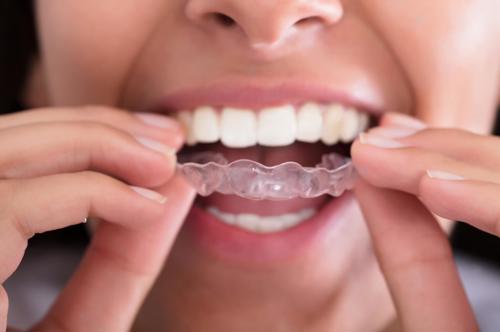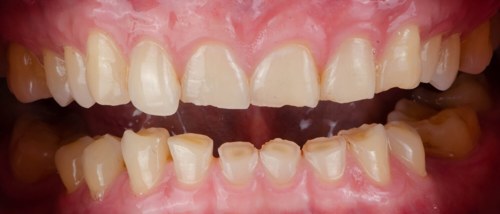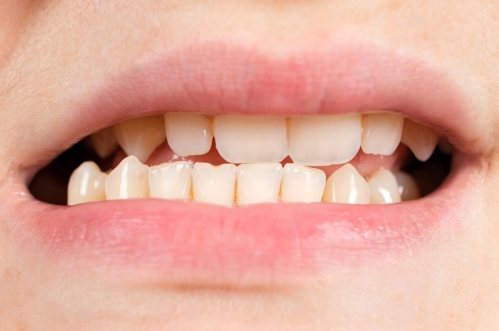
Have you ever gone to sleep at night and woken up the next morning with a headache, sore jaw, sore teeth, earache, a stiff neck, or a combination of the above? If so, you could very well be suffering with bruxism, or TMD (Temporomandibular disorders).
Bruxism is a condition, often caused by stress or anxiety, that causes a person to clench their teeth and jaw, grind their teeth, and/or bite their tongue or cheek in their sleep.
TMJ disorder however, is a TMD condition affecting the temporomandibular joint. This is the hinged joint that connects your mandible (lower jaw) to your skull and allows it to open and close. TMJ disorder can affect this joint, resulting in pain when opening and closing the mouth, locking of the jaw, clicking of the jaw, swelling in the face and jaw, and trouble eating and even drinking.
Both bruxism and TMJ pain can be very painful conditions which is why a fit dental splint or night guard is recommended by dentists. Today we’re going to look at the impact of custom night guard wear on bruxism and TMJ disorders.

As we touched upon previously, bruxism is a condition commonly affecting the teeth and resulting in teeth grinding. It occurs when a person clenches their jaw and/or grinds their teeth, usually in their sleep or when they are supposed to be relaxing.
Bruxism causes a series of side effects including tooth damage, jaw pain, headaches, sleep disturbances, ear pain, facial pain, gum recession, bruxism-relaxed anxiety and TMJ disorder.
In most cases, people grind their teeth or clench their teeth or jaw in their sleep so they aren’t even fully aware that they’re doing it at all. It can be treated with the use of a dental splint or night guards that fit to their teeth.
People often ask ‘do night guards help with TMJ?’ and the answer is yes. They also work equally as well when treating bruxism.
While genetics can play a part in why people grind their teeth, as well as certain medications, stress and anxiety are both common causes of it, along with misaligned teeth or issues with bite.
As far as the impact of dental splints wear on bruxism and TMJ disorders, night guards or mouthguards can considerably reduce a person’s symptoms suffering with bruxism, as they prevent the teeth from biting and the jaw from clenching.

In your mouth, connecting your lower jaw to your skull, you have a hinged joint known as your temporomandibular joint. TMJ dysfunction is a term used to describe a condition affecting this joint, though sometimes it is known as TMD (temporomandibular joint disorder).
The TMJ problem can affect the jaw and cause it to become inflamed, along with locking up. It can be a very painful condition that can make it difficult to eat, speak, and even drink fluids. As the condition progresses, it can cause headaches, dizziness, blurred vision, and head and neck pain.
Bruxism can sometimes lead to TMJ disorders so again, by default it is linked to stress. Dental emergencies and dental trauma can also cause TMJ.
While you may experience jaw pain after wearing night guards products, night guards can help treat TMJ by preventing grinding of the teeth and clenching of the teeth and jaw. Those who grind their teeth frequently put a lot of stress on the TMJ, which will damage it, wear it down, and eventually cause TMJ disorders.
Contrary to popular belief, although similar to one another, dental splints and night guards are not the same as one another.
Night guards are designed to provide a protective barrier between the upper and lower teeth and are best suited for bruxism. Rather than address the issue directly, they’re better for managing the symptoms of bruxism.
TMJ splints however, can sometimes be worn on the upper and lower teeth and can help displace energy in the mouth, putting less stress on the TMJ. Not only that, but they can also help prevent teeth grinding and address bruxism directly.
So, do night guards help with bruxism? Absolutely.
If you suffer from TMJ disorder, bruxism, or any other similar dental issues, it’s important to speak to your dentist and arrange for an appointment.
Speaking to a professional dentist is very important because they can make a diagnosis and can then prescribe the necessary treatment and products. Whether you need a top or bottom night guard for TMJ for example, or even both, your dentist will know instantly.
A dentist will examine your teeth and look through your dental records to determine which kind of dental splint or night guard you require. Not only that, but they can monitor the progress and see how you’re getting on over time, and if the night guard isn’t working, they can either have a new one custom made, or make alternative treatment arrangements.
When looking at the impact of dental splint wear on bruxism and TMJ disorders, it’s important to know which condition you are afflicted with. This is where it pays dividends to visit a professional dental practice.
A dentist can diagnose your problem, and not only prescribe treatment and night guards or dental splints, but they can also help you address the cause of your bruxism/TMJ disorder in the first place.
Never buy cheap, untested, unreviewed night guards or dental splints as you will likely experience jaw pain after wearing night guard products. You’ll also likely find your TMJ mouth guard not working and not helping in pain relief, due to it being inferior and of poor quality.
When choosing a dental splint/night guard, speak to your dentist and always go with the best quality and best fit you can search for.